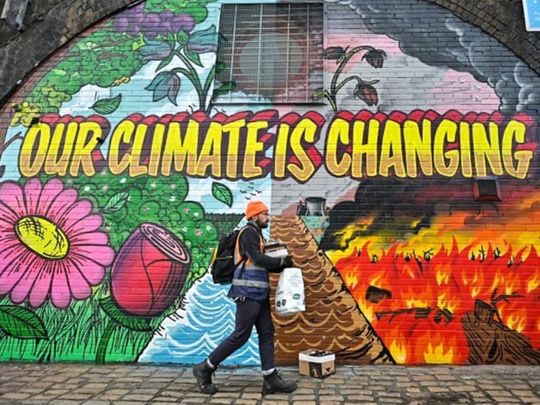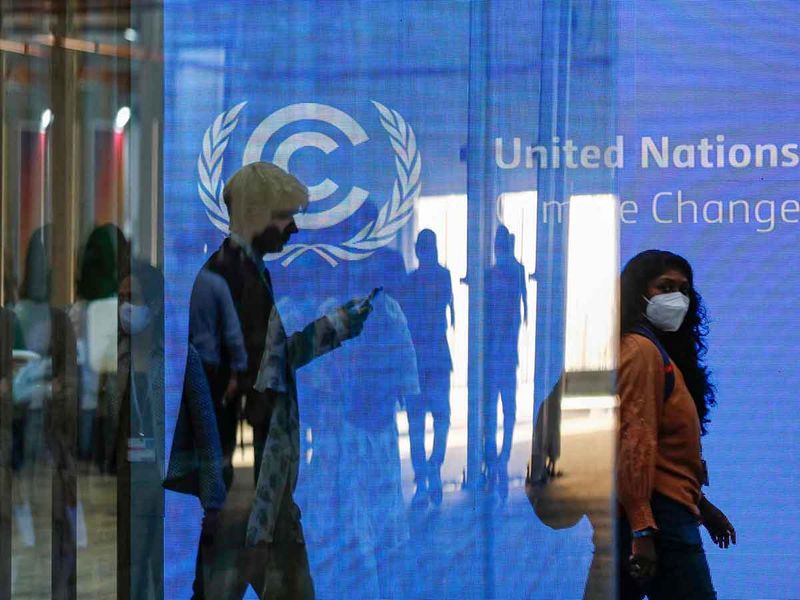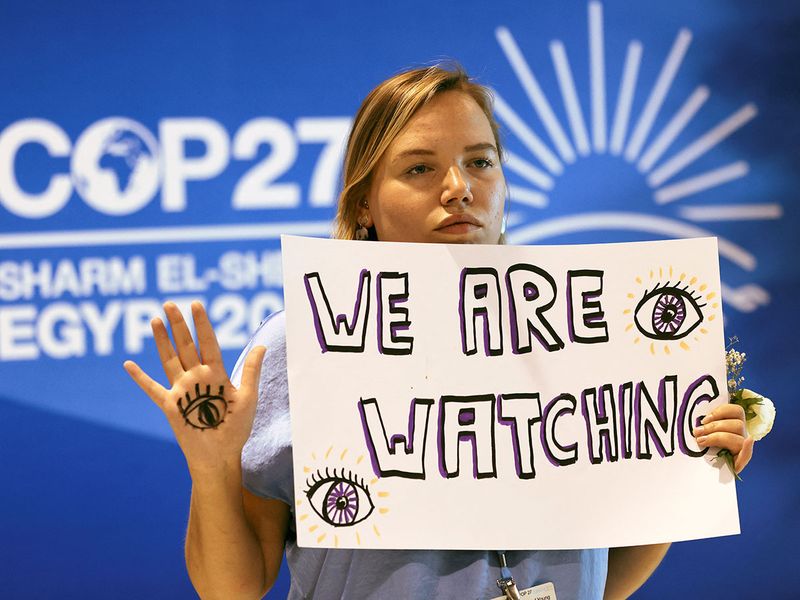
The UN Climate Change Conference, COP27, in Sharm Al Sheikh, Egypt, ended over the weekend. The deal to create a Loss-and-Damage fund is being touted as a success, but the history of climate financing doesn’t bring much hope.
At the same time, the two weeks of negotiations at the Red Seaside resort have not achieved anything that gives hope for the success of a global action to keep global warming below 1.5 degrees C.
Climate negotiation at the global level has been going on for three decades now. The annual emissions of greenhouse gases were about 20 gigatons when the negotiation started, which has nearly doubled since then and reached about 40 gigatons.
In 2015, countries had agreed in Paris to limit the global temperature to 1.5 degrees C. Still, as World Meteorological Organisation says, the last eight years are on becoming the eight warmest years on record.

The UN Environment Program’s recently released report warns that the world has “no credible pathway” to 1.5 degrees C in place today. The world’s failure to seriously cut greenhouse gas emissions has already ensured that the Paris Agreement’s target of meeting its 1.5 degrees C goal is highly likely to be missed.
In the last year’s UN Climate Change Conference in Glasgow, countries had pledged to speed up the end of fossil fuel subsidies and phase out the use of coal.
Last year also witnessed the highest level of greenhouse gas emissions in its history, and the increased use of coal was the main factor contributing to this surge. This year, at Sharm Al-Sheikh, the discussion moved from only coal to oil and gas. However, the final text has not mentioned phasing out fossil fuels, including oil and gas.
Around 150 countries have pledged to reduce methane emissions by 30 per cent by 2030. Pledging to cut greenhouse gas emissions is not the same as taking concrete actions to fulfil that promise.
Several countries have backed away recently from their pledge to update their climate goals to limit global warming to 1.5 degrees C.

The promises the countries have made till now to cut their emissions by 2030, as the UN Environment Program assesses, will put the planet on the track for warming of at least 2.7 degrees C, which will become extremely dangerous for people and the ecosystem.
At this challenging time, it is regrettable that the countries at COP27 have failed to commit to any meaningful reduction of greenhouse emissions.
While there is almost helplessness over failure to limit global warming, the COP27 was primarily occupied with discussing how to finance for “loss and damage”.
The agreement at Sharm Al-Sheikh to establish a Loss-and-Damage Fund is somewhat laudable, but that does not lead to much hope. Who will pay how much remains unclear, and it also has no liability and compensation provisions.
In 2009, the developed countries had pledged to mobilise $100 billion annually by 2020 as climate finance to support vulnerable developing countries in dealing with climate change. The goal is yet to be achieved.
There is no doubt that the progress in international climate negotiations has been too slow, and it has not been able to keep pace with science.
The failure of COP27 to give some hope on climate mitigation at this time of despair was not unexpected, and the signs of it were very much there, at least since 31 August, when G20 ministers disagreed on a joint statement at the end of their meeting in Bali.
COP27 ended up being an extended period of contentious negotiation over the text of the declaration, followed by a lofty declaration with no binding commitment.
Leaders of China, Russia, and India didn’t attend the COP27, though the resumption of formal climate talks between the US and China at Sharm Al Sheikh was a good development.
US President came to Sharm Al-Sheikh for one hour only, and his attendance and 20-minute-long speech were largely lacklustre. The highlight of 2 weeks of the Climate Conference was the presence of Brazil’s president-elect Luiz Inacio Lula.
Many delegates gathered to see him speak; he received a rock star reception. To the audience’s delight, he promised to restore the Amazon Forest and chase down climate criminals.

Lula’s election as Brazil’s President has brought hopes that Brazil’s environmental protection agencies will be operational, and he will unfreeze the Amazon Fund, which promotes conservation. Lula’s pledges are promising, but the politics of a divided Brazil is too complex for the world to start celebrating.
Though the climate negotiation at Sharm Al-Sheikh has been not so encouraging, the world can’t afford to lose hope and give up its willingness to live.
In 2023, the UN Climate Change Conference, or COP28, will be held in Dubai. The UAE, in recent years, has emerged as a significant player in diplomatic negotiations on various multilateral and bilateral issues.
It has also smartly positioned itself between two competing global superpowers and has developed an excellent working relationship with several regional powers in the Global South.
Despite owning large deposits of fossil fuels, it has taken a pragmatic approach to its energy transition and doing everything to reduce its emissions while not compromising economic development.
Thus, COP28, to be held in Dubai next year, offers a ray of hope in these dark times.











